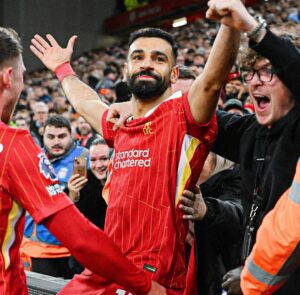
Israel went to the polls on Tuesday, September 17 to resolve a political deadlock but woke up on Wednesday more politically polarized and with no apparent prime minister.
While prime minister Benjamin Netanyahu failed to lead Likud and its allies to victory, his main challenger Benny Gantz failed to win. Gantz’s centre-left Blue and White party took 32 seats, one more than Netanyahu’s Likud. But in a 120-seat parliament, a government needs the support of 61-members of Knesset (MK).
No one was closer to a majority on Wednesday than they had been five months ago, in April. In the latest round, both major parties lost seats and the country is nowhere near forming a stable government.
Netanyahu campaigned on an irredentist platform, promising the settler movement that he would annex 25% of the West Bank in the Jordan Valley; he also managed two political mergers with the Kulanu and Zehut parties. Put together, he should have yielded 41 seats. Instead, he lost three. Ganz campaigned without negative messages against his opponent, also losing three seats.
Benjamin’s Netanyahu coalition is six seats short of a majority in parliament.
While he can rely on the support of the ultra-Orthodox parties, he cannot count on his former ally, Avigdor Lieberman, who campaigned on a strictly secular platform, demanding that ultra-Orthodox Jews join the armed forces. That means that Netanyahu cannot count on Yisrael Beitenu nine MKs. And Lieberman is likely to insist in a unity government rather than become a “kingmaker” that sees his party wither away.
Gantz has vowed not to take part in a national coalition government with Netanyahu. He is more likely to gain the support of the Joint List of four Arab-Israeli parties but that will no suffice. He too would need the support of Lieberman, who is not likely to feel “at home” in a left-of-centre coalition that includes Arab parties.
Ultimately, it is for the Israeli president, Reuven Rivlin, to choose who has the best chance of putting together a cabinet with a sufficient parliamentary majority. There is no love lost between Rivlin and Netanyahu and although the President may well push for a unity government, this may not be enough to keep Netanyahu in the political game.
The incumbent prime minister faces a series of corruption charges – bribery, fraud, breach of trust – and is seeking immunity. In approximately two weeks, Netanyahu will find himself facing a hearing by Israel’s Attorney General Avichai Mandelblit on October 2, and he will not have in coalition in place that can provide him with legal protection against indictment.
If Netanyahu is indicted, by law, he must resign. Even if Likud remains in the game, it is unlikely that the 70-year old that has ruled Israel for over a decade can remain in the game.
You may be interested

WAFU B U-17 Girls Cup: Ghana Edge Gallant Flamingos On Penalties In Final
Webby - December 22, 2024Despite a spirited performance Nigeria’s Flamingos lost on penalties to hosts Ghana on penalty shootout in the final of the…

Bournemouth Equal Burnley’s Old Trafford Feat After 3-0 Win Vs United
Webby - December 22, 2024Bournemouth’s 3-0 win against Manchester United on Sunday meant the Cherries equaled Burnley’s feat at Old Trafford.United went into the…

Vitolo Announces Retirement From Football
Webby - December 22, 2024Former Spain forward Vitolo has announced his retirement from football.The former Atletico Madrid, Las Palmas and Sevilla confirmed his retirement…


















![American Pastor, David Wilson Seen Eating The Box Of Woman Who Isn’t His Wife [Video]](https://onlinenigeria.com/wp-content/uploads/2019/10/american-pastor-david-wilson-seen-eating-the-box-of-woman-who-isnt-his-wife-video-150x150.jpg)






![Four Gunmen Invades UNIUYO Female Hostel, Stabs A Student And Steals Valuables [Video]](https://onlinenigeria.com/wp-content/uploads/2019/07/four-gunmen-invades-uniuyo-female-hostel-stabs-a-student-and-steals-valuables-video-150x150.jpg)


